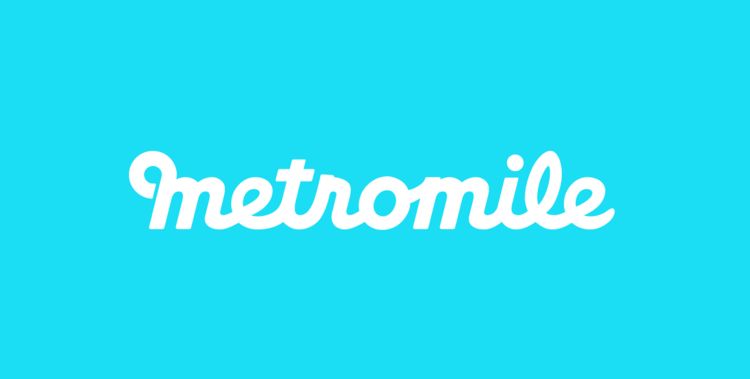Is car insurance paid monthly?
Most people pay their car insurance annually or every six months, especially with the incentive of a pay-in-full discount of 5-15%. But what if you need another payment option? Is car insurance paid monthly? Yes, it can be. Our experts detail the pros and cons of a month-to-month car insurance payment plan.
Read more Secured with SHA-256 Encryption





Table of Contents
Table of Contents


Insurance & Finance Analyst
Laura Adams is one of the nation’s leading finance, insurance, and small business authorities. As an award-winning author, spokesperson, and host of the top-rated Money Girl podcast since 2008, millions of readers and listeners benefit from her practical advice. Her mission is to empower consumers to live healthy and rich lives by planning for the future and making smart money decisions. She rec...
Laura D. Adams


Insurance Content Team Lead
Tonya Sisler has been a technical insurance writer for over five years. She uses her extensive insurance and finance knowledge to write informative articles that answer readers' top questions. Her mission is to provide readers with timely, accurate information that allows them to determine their insurance needs and choose the best coverage. Tonya currently leads a team of 10 insurance copywrite...
Tonya Sisler
Updated April 2024
- All insurance is prepaid, which means you have to pay at least one month in advance to maintain coverage
- Most companies allow you to pay monthly, semi-annually, or annually for your auto insurance
- If you cancel your policy, your insurer should issue a refund of the unused portion
Almost every state requires drivers to buy auto insurance, but you might be curious about your payment options. Unlike most bills, you must pay your car insurance upfront to guarantee coverage.
You may wonder, “Is car insurance paid monthly?” Most drivers choose to settle their bills monthly, but your insurer likely provides additional options. This article explains how insurance payments work, whether it’s better to pay upfront or in installments, and what could happen if you miss your due date.
Is car insurance paid monthly?
Do you have to pay car insurance every month? When purchasing a new car insurance policy, your coverage doesn’t begin until you pay at least one month in advance. After that, each payment covers the following month of coverage. Insurers use this amount to help cover the cost of any claim you might file.
For your policy to be valid, you must submit your payment before your coverage goes into effect. An insurer should allow you to settle the total amount or the first month’s bill to activate your coverage. Even if you pay your bill each month, you might need an initial deposit for a new policy.
Do you have to make a down payment for auto insurance?
Insurance companies often require a one-time down payment for new customers, which only applies when purchasing a new policy. Unless you develop a habit of missing or late payments, you shouldn’t have to pay a deposit when renewing your coverage.
If you have poor credit, prior lapses in coverage, or a history of late or missed payments, it can increase your chances of needing to pay a deposit. Your down payment can vary based on any of these factors but is generally between 25% and 50% of the total cost of your policy. (For more information, read our “Do you get your deposit back from car insurance?“).
When shopping for car insurance quotes, it helps to ask the company what you need to do to get your coverage started.
Read more:
Is it better to pay car insurance monthly or yearly?
Companies use a prepaid billing model, and you have different options for how often you pay, depending on your insurance company. While monthly payments are the most common, you can also settle your insurance once or twice a year by paying a larger sum.
Perhaps you are trying to decide which installment plan works for your situation. Payment options might depend on your insurance company, your household budget, and the terms of your policy. Each option has benefits and drawbacks that can help you decide which is the right choice for you.
Pros and Cons of Paying Auto Insurance Monthly
Is car insurance paid every month? Paying your insurance every month is a popular option, especially if you have a fixed income or a tight budget. Monthly payments offer flexibility and allow you to break down a substantial lump sum into more manageable portions.
Installment plans give you a set amount due at the same time each month, which can help you pay on time. It’s also easier to set up automatic withdrawals, so you never have to worry about missing a payment.
A disadvantage of paying your car insurance premium on a monthly basis is that, in the end, it costs you more than if you paid on an annual basis. The insurance company will often charge you more in administrative fees when you decide to pay more frequently.
Another disadvantage of paying monthly is that you have to remember to pay your bill on time every month. If you have a busy life, paying the bill may get away from you. If you pay it late, you probably will incur late fees which add up in the end.
Read more: Compare Monthly Car Insurance: Rates, Discounts, & Requirements
Free Insurance Comparison
Compare Quotes From Top Companies and Save
Secured with SHA-256 Encryption
Pros and Cons of Paying Car Insurance in Full
What does it mean when your auto insurance policy is paid in full? When paying for your car insurance up front, your payments might be annual or semi-annual based on your policy. Insurance companies write policies for six-month or year-long terms, and paying in full is a convenient option that gives you valuable peace of mind. (For more information, read our “Can you pay your car insurance yearly?“).
If you can afford the upfront cost, paying for your entire policy in advance could offer additional benefits. Do you get a discount for paying car insurance in full? Yes, many companies offer discounts for paying in full, allowing you to take advantage of added savings.
Read more: Car Insurance Discounts: Compare the Best Discounts
While convenient and cost-effective, this payment option isn’t for everyone. You should consider other options if you can’t manage a sizable annual or semi-annual payment.
A significant disadvantage for a lot of people in regards to paying car insurance on an annual basis is that they need to come up with a large sum of money at one time. For some people, this amount of money is not an issue, but for those who live paycheck to paycheck, this lump sum is difficult.
If possible, you should try to estimate your payment with our car insurance calculator ahead of time and ensure you have the money in the bank to cover it.
Another disadvantage to paying on an annual basis is that if you choose to switch to a different insurance company during that year, it can be a pain. Although insurance companies will usually refund your money, it can take them a month or two to get the check to you, which may affect you financially.
Why don’t all companies charge the same for monthly car insurance payments?
Insurance companies are not compelled by law to provide a specific monthly payment plan at a specific cost. Therefore, they take some things into consideration when they decide to offer monthly payment plans.
First, statistics prove that those with lower credit ratings tend to have more accidents or violations on their driving records. It’s assumed that those who need monthly payment options will be on the lower end of the economic scale and therefore, a higher risk to the insurance company.
Likewise, those who pay their premiums in full and upfront are deemed to be higher on the economic scale and get the best rates.
Second, when the car insurance company accepts monthly payments, it has less money to invest as a means of protection against a possible car insurance claim by the driver. This higher risk of financial loss is passed along to the consumer in higher monthly payments.
Finally, administering monthly payments requires a larger account receivable staff and more collection services. All of these things add up to increased costs that are passed on to you.
Are there car insurance companies that specialize in monthly payment plans?
In most major cities there are car insurance companies who specialize in monthly payment plans. Generally, these insurance companies are simply agencies rather than underwriters, making their money by selling insurance policies for larger providers.
You will generally pay less for your car insurance if you pay in full. But if you need to pay monthly, check AAA, Geico, State Farm, and USAA for the best monthly rates.
Justin Wright Licensed Insurance Agent
These companies tend to specialize in high-risk drivers as well, which makes monthly payment plans almost a necessity. Unfortunately, their rates can be significantly higher.
On the positive side such insurance companies often don’t require a substantial down payment except in extraordinary circumstances. If you can manage $100 or so a month, you should be able to put your car on the road.
Read more: Best High-Risk Car Insurance
Free Insurance Comparison
Compare Quotes From Top Companies and Save
Secured with SHA-256 Encryption
Are there any car insurance companies whose monthly payment plans are better than others?
Like any product or service we buy, there will always be some companies we think are better than others. It’s up to the individual consumer to know what he’s looking for and what he would consider a good payment plan.
But as a general rule, just remember not to focus completely on the monthly premium.
First, you want to make sure you find a policy that provides you with the appropriate type and amount of coverage. What good will it do you to find the cheapest monthly payment option if the policy doesn’t pay the full value of your vehicle in case it’s totaled?
By the same token, perhaps your bank or other financial institution requires a certain level of coverage not provided by the cheapest plan.
Second, you’ll also need to consider customer service and support. Some insurance companies that offer to let you pay monthly for car insurance are also notorious for poor customer service.
Read more: Where to Find Car Insurance Company Reviews
In some cases, although not always, these companies know they have high-risk drivers with few choices, so they don’t go the extra mile to make sure they have five-star service. An internet search for customer reviews is usually a big help here.
Finally, think of car insurance with monthly payments as a temporary thing. The sooner you can solve whatever financial issues have put you in this position to begin with, the sooner you can get lower monthly premiums and preferential treatment.
What happens if you make a late monthly payment?
Paying car insurance on time can help prevent serious repercussions:
- Lapsed coverage: When you miss a payment, you could lose your coverage until you pay the outstanding bill.
- Increased rates: If you pay your insurance late, your insurer could charge you more when it’s time to renew.
- Canceled policies: When you have frequent missed or late payments, your insurance company might decide to cancel your coverage.
- Suspended license: If you are in a traffic incident during a lapse in insurance, you could pay a fine or temporarily lose your driver’s license.
Avoid these consequences by paying your insurance bill on or before its due date. Always notify your insurer if you think you could be late making your payment so they can inform you of your available options.
Read more: What happens after a late insurance payment?
Can you get a refund if you cancel your insurance after paying your monthly bill in advance?
If you consider canceling your policy prematurely, your company should issue you a refund of the unused portion of your policy, although they might charge a cancellation fee.
Insurers calculate refunds as a prorated amount based on the number of days remaining on your policy. Be prepared by knowing which steps you need to take to cancel your coverage, and make sure to find out how much your insurer charges for policy cancellation.
Read more: How to Cancel Car Insurance: Step-by-Step
Case Studies: Exploring Payment Options in Car Insurance
Case Study 1: Monthly Payments vs. Annual Payments
John, a budget-conscious driver, chooses to pay his car insurance monthly. This allows him to manage his expenses more effectively. However, he misses a payment deadline, resulting in a lapse of coverage and a penalty fee.
Case Study 2: Late Payment Consequences
Sarah, a busy professional, forgets to pay her car insurance bill on time. As a result, her coverage is temporarily suspended, and she faces higher premiums when reinstating her policy. Timely payments are crucial to maintaining uninterrupted coverage.
Case Study 3: Refunds and Policy Cancellations
Mark decides to cancel his car insurance policy after paying his monthly bill in advance. He receives a prorated refund for the remaining unused coverage, but there is a small cancellation fee deducted from the refund amount.
Final Thoughts on Paying Upfront for Car Insurance
You must purchase auto insurance if you own and operate a motor vehicle in almost any state. Your insurer may allow for monthly, semi-annual, or annual payment plans.
Now that you know the answer to “Is car insurance paid monthly?” it’s also worth knowing how your insurer bills for coverage and which payment options are available. Regardless of whether you pay your insurance every month or six months in advance, avoid late payments to keep your policy current and coverage intact.

Frequently Asked Questions
Can insurance premiums be paid on a monthly basis?
Yes, insurance premiums can often be paid on a monthly basis. Many insurance companies offer monthly payment options to provide flexibility and convenience for policyholders.
Which types of insurance can be paid monthly?
Most types of insurance, including auto insurance, home insurance, health insurance, and life insurance, can typically be paid on a monthly basis. However, it is always recommended to check with your specific insurance provider to confirm their payment options.
Are there any advantages to paying insurance premiums monthly?
Yes, there are several advantages to paying insurance premiums on a monthly basis:
- Flexibility: Monthly payments allow you to spread the cost of insurance over smaller, manageable amounts, making it easier to budget.
- Affordability: Paying monthly premiums may be more affordable for individuals who prefer to allocate their financial resources in smaller increments rather than paying a lump sum.
- Convenience: Monthly payments eliminate the need for a large upfront payment, making it more convenient for policyholders.
What are the potential disadvantages of paying insurance premiums monthly?
While paying insurance premiums monthly offers advantages, there are a few potential disadvantages to consider:
- Higher costs: Some insurance companies may charge additional fees or interest for monthly payment options, which can increase the overall cost of the policy.
- Missed payments: If you forget to make a monthly payment, your policy may lapse or be canceled, leaving you without coverage. It’s important to stay on top of payment deadlines.
- Limited discounts: Some insurance companies offer discounts for policyholders who pay their premiums in full upfront. Choosing monthly payments may make you ineligible for these discounts.
Can I switch from monthly payments to annual payments or vice versa?
In most cases, insurance policyholders have the option to switch from monthly payments to annual payments or vice versa. However, it is necessary to contact your insurance provider to discuss the available options and any associated changes in premium amounts or fees.
Will my monthly premium stay the same throughout the policy term?
The monthly premium for your car insurance may stay the same throughout the policy term if there are no changes to your coverage or any factors that affect your premium.
However, it’s important to review your policy documents and consult with your insurance provider to understand if there are any potential changes or adjustments in your premium during the term.
Will paying car insurance build credit?
Paying your car insurance does not result in building credit. But paying late or not paying could lead to debt collection, which could harm your credit.
Get a FREE Quote in Minutes
Insurance rates change constantly — we help you stay ahead by making it easy to compare top options and save.






